Page Content 2017-04 eiNewsletter 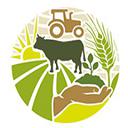 joint Newsletter of the Networks e+i and A&FS joint Newsletter of the Networks e+i and A&FS 
Dear members of the e+i and the A&FS network, We are very happy to present you with this year's first edition of our joint newsletter and wish you good reading.
Peter Beez Felix Fellmann
Focal Point e+i Focal Point A+FS
e+i Reminder: Support by external experts SDC e+i network members can use various experts up to one day of work (no bureaucracy, just inform the FP e+i) for thematic support such as commenting on documents like TORs, webinar on approaches and methodologies, brief literature overview on a certain topic, etc. If you need more time, ask ahead, maybe it is of general interest for the network:
Support PSD / FSD
Support VSD
Helen BradburyTeam Leader SDC Alliances Programme Georgia  What do you love about your work, what is special about it?
Alliances is a M4P programme. Its prolongation for 4 years allows us to build on the systemic changes already achieved and focus on regional development in the South Caucasus, SME sector sustainability and export. Inter alia, I love being able to develop reflexive organic programming, to respond to the changes created and the dynamic ever shifting environment. I really admire SDC’s consistent investment in the livestock sector in the South Caucasus and its support of the M4P approach here since 2005. Our dialogue has developed over the years for the mutual benefit of both. Our relationship mirrors the market development approach itself at its best, it is flexible and reflexive, it allows for debate and the absorption and adaptation to circumstances and challenges. Which is / are your favorite instrument(s)?
Outside of the e+i Network, I would highlight the DCED and the BEAM Exchange (formerly the M4P Hub). SDC has been a long term supporter of both. They offer MSD programmes, peer networks and frameworks for support and development. I see the capacity of more and more MSD practitioners growing largely thanks to these two institutions. For training, the Springfield M4P course still inspires any member of my team who takes it and DCED affiliated results measurement trainings have greatly benefited my staff. In addition, I would draw attention to the SDC Gender Framework and the five governance principals as being highly useful in guiding programme development. My favourite internal instrument is our downloads page on our website where all our reports and studies are posted. It is a very handy ever accessible library! Your message for your colleagues?
Always focus on the positive and identify the factors in any situation that will incentivize people to act for the good. Felix FellmannFocal Point, SDC A+FS Network  Dear A+FS Network Members, dear readers
Already three and a half years have passed since I started my exciting job as Focal Point of the Agriculture and Food Security (A+FS) Network. This function provides a lot of space for creativity, interaction and learning and I am grateful to SDC that I was fortunate enough to have experienced such a creative and open workspace.
I would like to give you some insights into my experiences and also share reflections on how the network could become even more effective. Reflecting upon what I have enjoyed most, several things come to mind: Firstly, facilitating, moderating and promoting knowledge is a noble task and a great privilege. In this function, SDC gave me space that allowed a lot of creativity, experimenting and exploring, all of which is necessary for the further development of the network because there are just no blueprints to follow – and that is of course how it should be. Furthermore, I immensely enjoyed meeting you through the network and in person in global or regional face-to-face reunions (f2f) and it was very enriching to work with the Team of the Global Programme Food Security including young people like Simon, Rahel, Martina, Maria, Bahar and Sophie. These people are at the beginning of their professional life while I am rapidly approaching the end. These very talented young colleagues gave me valuable insights into their visions, plans, perspectives, ambitions and worries. It was highly motivating to meet people from academic institutions, from private sector companies, from civil society and from Government institutions at various levels (municipality, cantonal, national). For example, we are supporting an art project, SMArt: Sustainable Mountain Art, with different mountain cantons of Switzerland. To meet, to discuss, to explore the environment in which people form those mountainous areas live is so enlightening! I gained a lot of insights of Governance through such contacts. After ten years in SDC operations in Central America and Mongolia I was not at all sure what to expect at the SDC head office in Switzerland. In the course of these last four years, I was able to move a big step forward in learning: Not being linked directly to operational work brings many new opportunities. I was able to reactivate my contacts and to add many new inspiring ones. Concretely, I again recognized the importance of effective Governance for any development process such as Food Security, Nutrition, RAS, and Reduction of Post-Harvest Loss and obviously of Land Governance,
Seed Systems, Urban – Peri Urban – Rural Dynamics, and so forth. I also learned that permanent and critical reflections are paramount to keeping up with the rapid changes and to make one’s work count. Lastly, I learned how important it is to personally meet Swiss men and women who go to work every day and who pay SDC’s work with their taxes. Many of them have a very positive outlook on our world and underline the importance of global solidarity. However, many of them also wish to understand in a clear and direct language that the work we do indeed does improve the lives of underprivileged children, men and women. In order to answer their questions convincingly - we still have some learning to do! Through the experience of taking part in lively and most informative f2f meetings in Thun, Isiolo, Hanoi and Sursee I have seen a lot of interaction, enthusiasm, sharing and learning. I have spent hours, days and weeks reassessing and discussing the following question with colleagues and experts: How can we reach similar levels of enthusiasm and networking dynamic using e-based platforms such as blogs and e-discussions? I have yet to answer the question, however, I have learned this far: If e-based exchange reaches high levels of interaction combined with f2f events, our network members can provide so much knowledge and support to development interventions! Hence, in the last four years, I learned that e-based communication platforms cannot replace direct human interaction. Nonetheless, to connect your knowledge and insights with that of other experts and to find answers to questions together, virtual interaction combined with f2f is the trend of the future, both for professional as well as for economic reasons!
Overall, my work experience as Focal Point of the Agriculture and Food Security Network was very positive, rich in experiences, full of open questions and discussions, opportunities for learning and teamwork. I thank you all for the wonderful experience and wish you all the same amount of joy for your own work. And remember: connect and learn as much as you can. I sure did! Felix Fellmann currently is the Focal Point of SDC's Agriculture and Food Security Network, based at the Global Programme Food Security at HQ in Bern. He has led the A+FS Network with a lot of enthusiasm, a zest for life and learning.
This August, he will go on rotation and has been appointed as chef IZA in Bejing. Before he leaves for this new and exciting journey, he is looking back at the last years as Focal Point of the A+FS Network.
 10 Mar 2017 Enjoy a very short video where Swisscontact explains its role as a facilitator in the chicken/ maize value chain in Bangladesh: here  20 Feb 2017 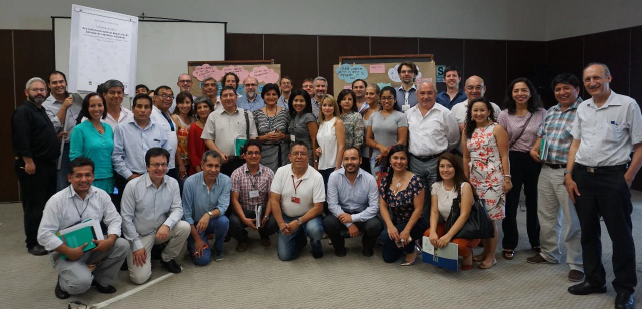 An international Meeting for the creation of a Latin American Network for MSD took place end of January 2017 in Lima, Peru, organized by ASOCAM, BEAM Exchange and Swisscontact with support from ILO. 60 participants from 35 organizations (governments, NGOs, academy, private sector, research Institutes, bi- and multilateral donors) from 12 countries participated in order to exchange and share lessons of good practices, lessons learned and challenges in the application of systemic approaches in Latin America; to network; and to share strategic inputs on joint aspirations to promote the approach and the network in Latin America and the Caribbean. An international Meeting for the creation of a Latin American Network for MSD took place end of January 2017 in Lima, Peru, organized by ASOCAM, BEAM Exchange and Swisscontact with support from ILO. 60 participants from 35 organizations (governments, NGOs, academy, private sector, research Institutes, bi- and multilateral donors) from 12 countries participated in order to exchange and share lessons of good practices, lessons learned and challenges in the application of systemic approaches in Latin America; to network; and to share strategic inputs on joint aspirations to promote the approach and the network in Latin America and the Caribbean.
>> more information about the event here >> synthesis report (spanish) of the event  22 Mar 2017 Listen to our colleagues Rochus Mommartz (responsability) and Annette Kraus (Center for Microfinance, University of Zurich) being interviewed on the issue of Microfinance Funds. The 5 minutes long interview was aired on Swiss National Radio on March 15th 2017. It is in German. Among other highlights of this interesting interview, please don’t lose the moment (at 59 seconds) when Rochus gets all exited about 2017 being the first year ever that Microfinance beneficiaries in India have the possibility to open a savings account at their Microfinance Institution: here 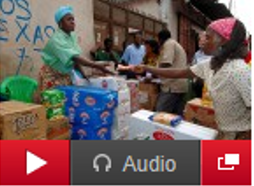
 13 Mar 2017 On March 16th we held a Savings and Credit Forum on: What are Social Performance Management and Reporting Practices of Financial Institutions and Microfinance Impact Investor? please have a look at the different inputs from our colleagues. You can find the programme and the presentations >> here.  07 Mar 2017  The Swiss Capacity Building Facility (SCBF) is a public-private development partnership dedicated to improving the lives and livelihoods of low-income people and micro-entrepreneurs in developing and emerging economies. It is a grant-making organisation with the objective to promote financial inclusion as a strategy for alleviating poverty. SCBF currently unites 19 Switzerland-based member organisations, including SDC as the public partner and core funder. The members greatly contribute through their expertise, ensuring SCBF stays focused and selects high-impact projects for capacity building support. This creates a unique partnership working to help partner financial institutions to enhance their outreach to financially excluded populations, as part of social and economic development work. Project highlights in Product upscaling (November 2016 to February 2017) 
KiWi – making fintech work for micromerchants in Mexico: How technology can transform the microfinance industry “KiWi card payment solution for micromerchants in Mexico“ ©Courtesy of KiWi
Optimising claims under the PGMF Beneficiary Welfare Programme in Myanmar: 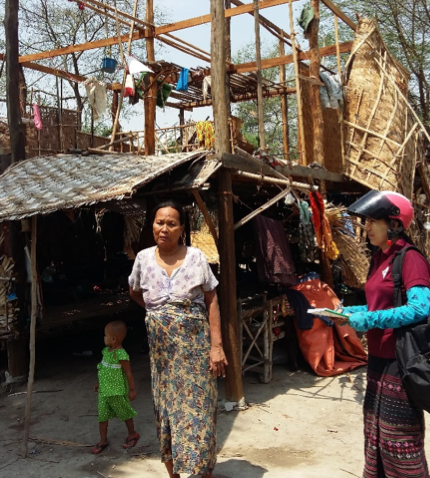 “PGMF borrower impacted by a high-wind event. The loan officer conducting a damage assessment“ (picture to the right) © Courtesy of Stonestep “PGMF borrower impacted by a high-wind event. The loan officer conducting a damage assessment“ (picture to the right) © Courtesy of Stonestep
There are several projects in the pipeline in Tunisia, Egypt, Bangladesh, Laos, Cambodia, Myanmar, Kenya, Colombia, Nicaragua, Haiti, Zambia, Kenya, Ivory Coast, and the Democratic Republic of the Congo. Opportunity International Switzerland joined the SCBF 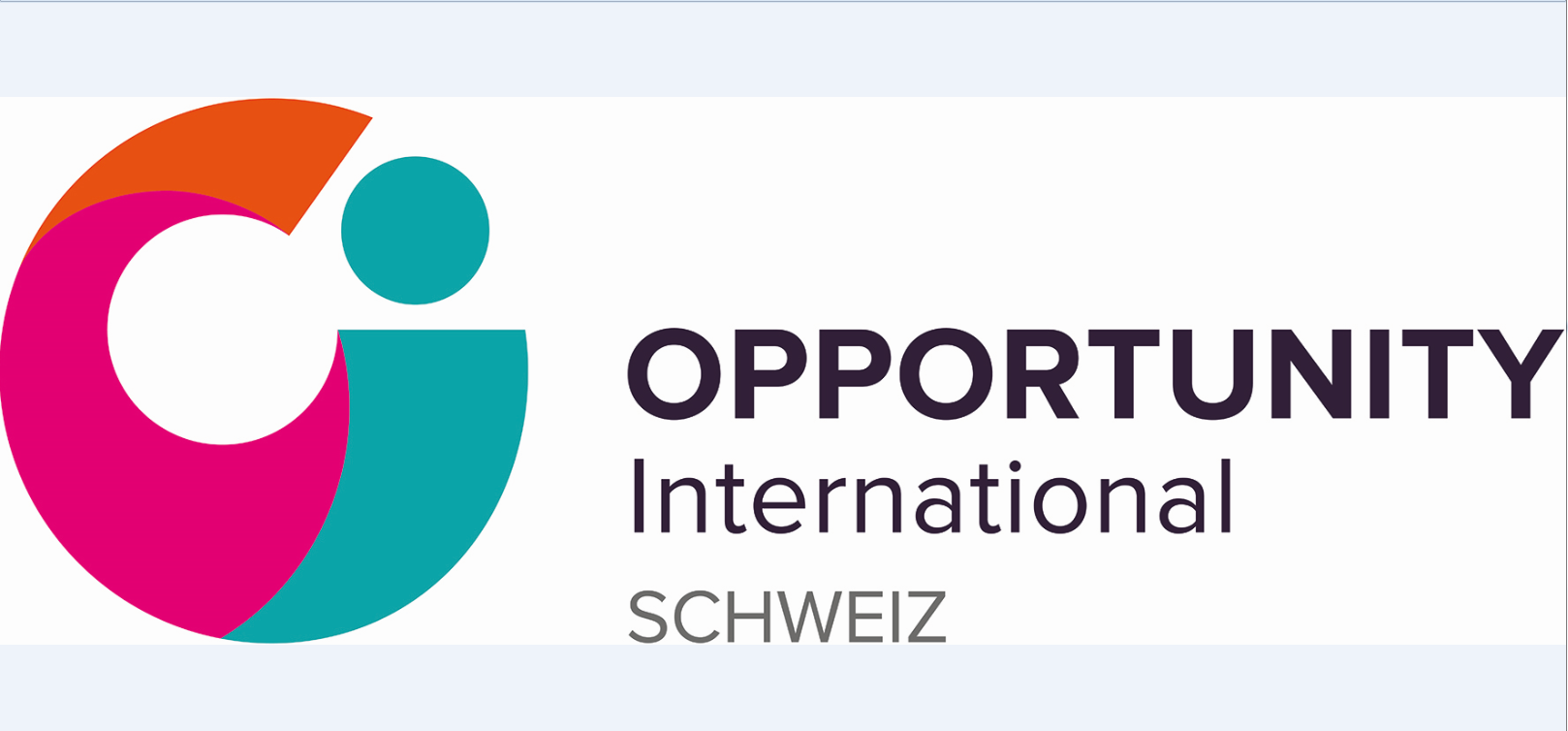 SCBF has cordially welcomed Opportunity International Switzerland as a new member, which joined in the second half of 2016. With that, SCBF´s membership base has grown to 19 organisations. SCBF has cordially welcomed Opportunity International Switzerland as a new member, which joined in the second half of 2016. With that, SCBF´s membership base has grown to 19 organisations. Opportunity International Switzerland (charitable Swiss foundation) is associated partner of the Opportunity International Network. Since 1971, OI has provided access to loans, savings and insurance to help women grow small businesses; teachers build local schools and smallholder farmers to increase their crop yields. Opportunity is actively serving 12 million hardworking entrepreneurs in 25 countries around the world.  20 Mar 2017 The SDC funded project "Skills for Jobs Albania" was recently featured in Swisscontact's online magazine "Stories from the field". The programme supports Albania's new skills strategy and compromises three components: - Improvement of the quality of formal and non-formal VSD in selected sectors, benefiting the private sector and increasing accessibility to women and youth.
- Multi-Functional Centres establishing sustainable and innovative relations with the private sector.
- Functionality at the provider level of inclusive labour market insertion facilities and instruments. Click here to learn more about the programme in general and what it has to do with the new female Zuckerbergs.  10 Mar 2017 GIZ launched the new compact quarterly "TVET Telegraph". Each issue will focus on a certain topic, which is highly relevant for German VET cooperation. The current issue is dedicated to the topic of Skills Development in the Context of forced Displacement and Migration. Besides that, the team behind the newsletter will update you on recent publications and upcoming events (just like we do). To subscribe to the service, write an email to svbb@giz.de and indicate whether you prefer the englisch or german edition. Click here to read the first issue in german or english.
 01 Mar 2017 The Swiss Programme for Research on Global Issues for Development (r4d) launched two new research projects in the field of VSD: - Linking Education and Labor Markets: Under what conditions can Technical Vocational Education and Training (TVET) improve the income of the youth?
- The contribution of vocational skills development to inclusive industrial growth and transformation: An analysis of critical factors in 6 countriesBoth projects were selected during a two-stage process (read more here). Researchers should also have a look at the current third thematically open call for research projects.
![]() Between 3rd and 7th April 2017 we will be seeking your feedback and comments on the revised version of the SDC MSD Management Guidance! After receiving very positive feedback but also a lot of suggestions for improvements to the 2014 version of the guidance (available here, the e+i Network Focal Point commissioned a revised version of the guidance. The revision is based on interviews with more than 10 key informants who are championing market systems development within and for SDC. Please reserve some time during that week to engage in a lively discussion! We will share a draft version of the guidance before the start of the discussion.
![]() This training course, organized by the International Labour Organization (ILO) is aimed at programme staff and managers leading value chain projects, as well as donors, consultants and UN system agencies. The training focuses on how to facilitate the development of sustainable business models to secure lasting results and how to facilitate market system development, how to strengthen inclusive market systems how to engage the private sector and how to manage value-chain development programmes. >> more Each year, over 500 youth and economic development experts from more than 50 countries gather at the GYEO Summit to connect, exchange, and collaborate. The 2017 Global Youth Economic Opportunities Summit theme will explore what the future of work holds for young people in developing contexts and for professionals working to expand youth economic opportunities globally in a changing world of work. >>more ![]() The programme is aimed at experienced practitioners and decision makers in private sector development who are looking for deep insights from both theory and practice in how economies change and what the role of development actors can be to foster this change. This includes systematic approaches to how interventions can be designed in the often messy and complex reality of economic development. The content is relevant for practitioners who work in Local Economic Development (LED) or related approaches, Market Systems Development and M4P, and other Private Sector Development approaches. >> more ![]() The SEEP Network is hosting an international conference on women’s economic empowerment (WEE) and the fundamental systemic barriers which impede scalable and sustainable change. The forum will bring together leading stakeholders in the field of WEE in order to facilitate dialogue, build global learning connections and promote effective practice and police to address the needs of very poor and marginalized women around the world. The ultimate goal and frame of the convening will focus on how we can contribute to systemic shifts that help women to realise sustainable economic empowerment across sectors. >>more Please refer to the brochure for full details andconditions for the event. Details are also available on the website, where you may also apply on-line: knowledge@springfieldcentre.com). An MS Word version of the application form can be found here for your convenience (please email completed forms to knowledge@springfieldcentre.com).The official closing date for applications is 3 March 2017, but we have had a lot of early interest in this event so expect the places to fill up quickly. This programme focuses directly on a key challenge facing governmentsand development agencies: how to improve marketsystems for businesses and for poor people? The programme builds on the Springfield Centre's successful record in offering training on the marketdevelopment approach to more than 1,700 people over the last 17 years. The one day introductory course on June 27th gives a basic understanding and overview of the topic. It is directly followed by this two-day advanced course. Participants gain an in-depth understanding of the main issues, problem areas and current trends in financial systems development. They apply state-of-the-art tools for monitoring and evaluating the financial and social performance of investments in microfinance and financial sector development. Participants can also characterise different microfinance investment instruments and vehicles and understand the key principles of risk management of microfinance investments. Hurry! There are only a few
places left. >> more This introductory course of one day allows participants to gain basic understanding of how microfinance works, how it relates to financial systems, how product development responds to demand and addresses financial market imperfections, and what tools exist to analyze success and risk factors.
This one day course is directly followed by a two-day advanced course. Participants gain an in-depth understanding of the main issues, problem areas and current trends in financial systems development. They apply state-of-the-art tools for monitoring and evaluating the financial and social performance of investments in microfinance and financial sector development. Participants can also characterise different microfinance investment instruments and vehicles and understand the key principles of risk management of microfinance investments. (>>more) Application closed, waiting
list. >> more This course of two days allows participants to gain a basic understanding of microinsurance. They explore theory and practice of offering microinsurance products to low-income customers in developing countries, where social security systems typically fail to reach the majority of the population. Through a simulation tool that introduces market uncertainty to classroom learning, they experience the key aspects of managing a microinsurance scheme. In a simulation case study, course participants analyse a business scenario, and decide and implement appropriate action to achieve strategic objectives. Also, participants get a better understanding of how the process and components of a microinsurance scheme interrelate and impact upon each other, and discuss financing and institutional options for the microinsurance scheme. Hurry! There are only a few
places left. >> more The Swiss Forum for Skills Development and International Cooperation (FoBBIZ) annually awards a price for successful, innovative and sustainable international skills development projects and concepts.Particularly, the FoBBIZ Prize is intended to draw attention to ideas,experiences or outcomes in this field within an international context. The prize is awarded to concepts, projects or developments that can be implemented at different levels (i.e. at the education system level, the institutional level or in teaching-learning processes). Under this link: http://www.fobbiz.ch/de/fobbiz-preis/
you can find the documentation of the event.
For more Information about the event, click here.
The conference aims to deepen understanding of the labour market effects of various types of skill mismatch and how they can be best measured in different country contexts. It will include ILO research and also present the work of other partner international organizations. For more information and the registration form click here. Each year, over 500 youth and economic development experts from more than 50 countries gather at the GYEO Summit to connect, exchange, and collaborate. The 2017 Global Youth Economic Opportunities Summit theme will explore what the future of work holds for young people in developing contexts and for professionals working to expand youth economic opportunities globally in a changing world of work. >>more The course will aim to make planners and policy-makers more aware of the importance and positive impact of careers guidance in developing and emerging economies. The target group are directors of public and private training institutions; representatives of employers'/workers' organizations representatives of ministries of labour and education. Application deadline is May 5. Read more here. The 2017 Annual Conference of Swiss Humanitarian Aid and the Swiss Humanitarian Aid Unit will focus on hope for children and young people in humanitarian crises. Participants include Federal Councillor Didier Burkhalter, Pierre Krähenbühl, General Commissioner of the United Nations Relief and Works Agency for Palestine Refugees in the Near East (UNRWA), Elhadj As Sy, Secretary General of the International Federation of Red Cross and Red Crescent Societies (IFRC), Ambassador Manuel Sager, Director General of the SDC and Ambassador Manuel Bessler, Delegate for Swiss Humanitarian Aid and Head of the SHA. More information and the registration form is available here.
Course Objective
Rooted in Switzerland’s own unique and strong system, vocational education and training (VET) has been one of the key pillars in Swiss international cooperation ever since itsbeginnings. After a slack period, VET is back on the agenda of international cooperation.The aim of the training course is to strengthen the capacity of the participants in portfoliomanagement for VET, skills development and active labor market policies. Please visit NADEL's website for the registration forms or more information about the admission requirements.  13 Mar 2017 It is a highly complex task to design and implement projects in the field of international development cooperation. This is one of the reasons why everyone who works in the field relies on useful resources and regular exchange with peers. Therefore, the Focal Point offers SDC e+i network members expert support for up to 8 hours. Learn more about this service here (we've even produced a short video for you).  13 Mar 2017 It is a highly complex task to design and implement projects in the field of international development cooperation. This is one of the reasons why everyone who works in the field relies on useful resources and regular exchange with peers. Therefore, the Focal Point offers SDC e+i network members expert support for up to 8 hours. Learn more about this service here (we've even produced a short video for you).  22 Mar 2017 SDC new Education strategy covering both basic education (BE) and vocational skills development (VSD) was approved by the SDC directorate in mid-February 2017. As mentioned in the Dispatch for international cooperation for 2017 to 2020, approved by the Swiss parliament, the engagement in education (BE & VSD) will increase by 50% in comparison to the previous period (2013-2016). The Strategy provides orientation for its engagement in transition, development and humanitarian contexts. SDC’s Education Strategy develops how basic education and vocational skills development are interrelated and mutually reinforcing, without losing sight of the interconnection of VSD with labor market integration and economic development. It provides a modular framework allowing for adapted responses to partner countries contexts, needs and priorities. It contains 6 strategic orientations on 1) education systems governance, 2) quality and relevance, 3) inclusion and equity, 4) transition to work, 5) sustainability, cohesion and resilience and 6) global and regional agenda. On May 31, 2017 the SDC Education Strategy will officially be launched in Bern. At the launching event the State Secretariat for Economic Affairs SECO will also present their new position paper on Skills Development in Economic Development Cooperation. Please save the date, more information coming soon!  13 Mar 2017 It is a highly complex task to design and implement projects in the field of international development cooperation. This is one of the reasons why everyone who works in the field relies on useful resources and regular exchange with peers. Therefore, the Focal Point offers SDC e+i network members expert support for up to 8 hours. Learn more about this service here (we've even produced a short video for you).  15 Feb 2017 Everyone interested in the recent development and the future of the labour market should check out CEDEFOP's website 'Skills Panorama'. The heart of the website is an easy-to-use data navigator which enables you to explore labour market and skills information compiled from various data sources. Besides this, the site lets you browse through plenty of occupational profiles and hosts a blog. Click here to explore it by yourself.
 13 Sep 2016 The Swiss Federal Institute for Vocational Education and Training SFIVET offers a new programme for international VET decision makers, experts and other interested parties. The CAS programme will provide participants with a detailed understandingof the Swiss system of upper-secondary level vocational education and training as well as tertiary level professional education. Participants will bring their country/company-specific questions into the programme and elaborate on solutions for their own country. Read more about the programme here. Roel Hakemulder; Andrew Wilson-HELVETAS Swiss Intercooperation [1 MB] This case study was done less than two years after the project started supporting key market actors in the IT sector. It was therefore unlikely to already demonstrate the full eventual impact of the IT firms on jobs for young women and men. Two leading actors of the IT sector in BiH – HUB 387 and Bit Alliance – were used as entry to stimulate broader changes in the sector. The MarketMakers project were able to bring about greater awareness of IT as a career choice and an increasing number of students choosing IT education; improved public-private dialogue for changing perceptions of the IT sector in Government and the growth of trust between the Government and the private sector; and trust and interaction among IT private firms where entrepreneurship and innovation are valued, encouraging small companies and start-ups to grow more aggressively. Swiss Confederation [10.2 MB] ‘The Swiss Confederation - a brief guide' contains information about Switzerland's political system, the administration and its judicial authorities. In addition to explaining the workings of the state it also provides an insight into the activities of the Federal Administration. The Department of Foreign Affairs and its activities are presented on page 45 et seq. Risi Albania [9 MB] This case study explores and
explains the RisiAlbania media intervention which aims to make mass media an
ongoing provider of information on employment issues. This is one of the first
times that media has been used in a sustainable way in a development project
focusing on addressing youth unemployment. The experience of the project has
application not only to employment interventions but also more widely in
development projects which have a focus and ambition for sustainability and
creating scale through replication within the market. This case study explains
an intervention where mass media is not merely a paid messenger, but a
stakeholder that can provide the information that is essential to the effective
operation of industries, markets and sectors. Focal Point e+i-SDC [38 kB] In this document the Focal Point e+i listed all planned activites and topics for 2017.
Important: there will be no global F2F in 2017! The Focal Point is planning to organize a F2F in spring 2018. DCED [1.8 MB] Inclusive business support is a growing priority for manydonor and development agencies but views on the most effective support optionsvary. This scoping paper focuses on business environment reform: How canagencies help create an enabling environment for inclusive business in partnercountries? And how, if at all, does this differ from regulatory and policy reformto facilitate private investment in general? In order to help answer thesequestions, this paper summarizes a very large body of emerging evidence, structuringit into key debates for further exploration. ODI [1.3 MB] This Working Paper seeks to clarify what is a social enterprise in a developing country context. It is written from a broad public interest perspective rather than one of an investor in such enterprises. We review some of the alternative descriptions in the literature to offer a relatively narrow definition, combining the primacy of the enterprise’s social intent with robust financial viability thresholds. We then propose a rough-and ready questionnaire tool and scoring scale that tries to locate candidate enterprises on these twin axes of social impact and financial sustainability. We apply this tool to a first small batch of relatively well-known cases, and then draw some preliminary lessons as to its potential wider applicability. We conclude that this modest effort illustrates both the difficulties and the value of clarifying concepts and definitions, and suggest it be extended to broader portfolios of candidate enterprises to refine the methodology. Karri Goeldner Byrne,Timothy Sparkman, Ben Fowler-Beam Exchange [399 kB] Swiss Confederation [10.2 MB] ‘The Swiss Confederation - a brief guide' contains information about Switzerland's political system, the administration and its judicial authorities. In addition to explaining the workings of the state it also provides an insight into the activities of the Federal Administration. The Department of Foreign Affairs and its activities are presented on page 45 et seq. TrustLaw; Instiglio; Baker McKenzie A Legal Road Map for Social Impact Bonds in Developing Countries looks at Social Impact Bonds (SIBs); a financial mechanism that enables investors to pay for a set of interventions to improve a social outcome in collaboration with the government. The SIB model presents a rare opportunity for the private sector to work with governments to fund essential social programmes that address the community’s needs. The innovation of the bond is in the repayment – investors are only repaid if and when the social outcomes, such as reducing homelessness or prisoner rehabilitation, are achieved. Focal Point e+i-SDC [38 kB] In this document the Focal Point e+i listed all planned activites and topics for 2017.
Important: there will be no global F2F in 2017! The Focal Point is planning to organize a F2F in spring 2018. Katherine Caves and Ursula Renold-ETH KOF The authors of this working paper examine eight international VET reforms through their first year. They find that cases where employers are highly engaged make more progress, excepting powerful top-down reforms. High employer engagement seems riskier because of the greater investment by firms, but the returns it generates lets high-engagement reforms sidestep the prisoner’s dilemma and improve implementation progress. Keywords are: vocational education and training, education reform, implementation, employer engagement Roel Hakemulder; Andrew Wilson-HELVETAS Swiss Intercooperation [1 MB] This case study was done less than two years after the project started supporting key market actors in the IT sector. It was therefore unlikely to already demonstrate the full eventual impact of the IT firms on jobs for young women and men. Two leading actors of the IT sector in BiH – HUB 387 and Bit Alliance – were used as entry to stimulate broader changes in the sector. The MarketMakers project were able to bring about greater awareness of IT as a career choice and an increasing number of students choosing IT education; improved public-private dialogue for changing perceptions of the IT sector in Government and the growth of trust between the Government and the private sector; and trust and interaction among IT private firms where entrepreneurship and innovation are valued, encouraging small companies and start-ups to grow more aggressively. Caritas Caritas' new annual book series «Almanach Entwicklungspolitik» is dedicated to the broad topic of poverty and poverty reduction. The first edition focusses on VET.
Swiss Confederation [10.2 MB] ‘The Swiss Confederation - a brief guide' contains information about Switzerland's political system, the administration and its judicial authorities. In addition to explaining the workings of the state it also provides an insight into the activities of the Federal Administration. The Department of Foreign Affairs and its activities are presented on page 45 et seq. Risi Albania [9 MB] This case study explores and
explains the RisiAlbania media intervention which aims to make mass media an
ongoing provider of information on employment issues. This is one of the first
times that media has been used in a sustainable way in a development project
focusing on addressing youth unemployment. The experience of the project has
application not only to employment interventions but also more widely in
development projects which have a focus and ambition for sustainability and
creating scale through replication within the market. This case study explains
an intervention where mass media is not merely a paid messenger, but a
stakeholder that can provide the information that is essential to the effective
operation of industries, markets and sectors. Sandra Barlet, Rohen d'Aiglepierre-AFD Placée au cœur des priorités des politiques nationales, des sociétés civiles africaines, des partenaires au développement, la problématique de l’accès à l’emploi, et particulièrement des jeunes, pousse les acteurs à proposer des réponses nouvelles. Depuis quelques années, des dispositifs d’appui plus transversaux sont testés afin d’accompagner les jeunes dans des contextes où peu d’entre eux parviennent à accéder ou à évoluer dans des conditions d’emploi qui les satisfont. Cette publication présente les politiques et programmes mis en œuvre par les gouvernements locaux et les opérateurs du secteur, ainsi que des réflexions menées sur l’appui à l’insertion des jeunes dans le cadre des institutions internationales et des partenaires techniques et financiers. Jayaram, S., Munge, W., Adamson, B., Sorrell, D., Jain, N. (Eds.) This book seeks to examine the skills development agenda for youth by exploring two key questions for sustainable livelihoods: What are the skills needed for employability in developing countries, especially in Africa and Asia? And, what skills are currently possessed by students and secondary school leavers? Ly Thi Tran, Kate Dempsey (Eds.) This edited book addresses a range of aspects of internationalization in vocational education and training (VET) in different countries. It considers the impact of internationalization and student mobility on VET at the sectoral, institutional and individual levels as the sector emerges as a key tool for social and structural change in developing nations and as a flexible and entrepreneurial means of growth in developed nations. The book explores not only the effects of the neo-liberal market principle underpinning VET practices and reforms, but importantly considers internationalization as a powerful force for change in vocational education and training. Marion Ginolin, Nebghouha Mohamed Vall, François Robert, Le Vif du Sujet-AFD AFD’s Sectoral Intervention Frameworks (SIF) are reference documents that plan and steer work in a given field over a period of three to five years, in addition to providing financial guidelines (amounts planned for support, financial instruments used), technical guidelines (targeting support, links to national policies and other partners) and geographical guidelines. Focal Point e+i-SDC [38 kB] In this document the Focal Point e+i listed all planned activites and topics for 2017.
Important: there will be no global F2F in 2017! The Focal Point is planning to organize a F2F in spring 2018. Robin Mégret Deux jeunes diplômés de la HES-SO Valais-Wallis débarquent dans la ville de Kibuye avec pour seuls bagages, leurs connaissances en énergies renouvelables. |
